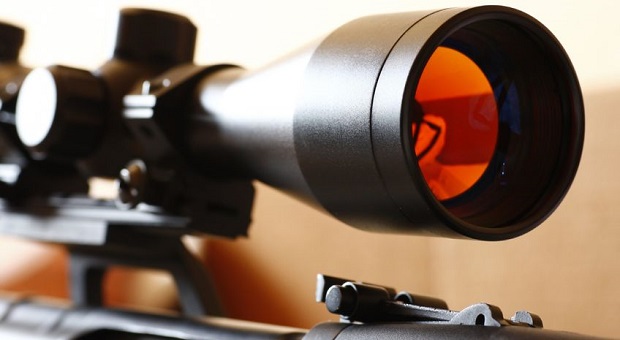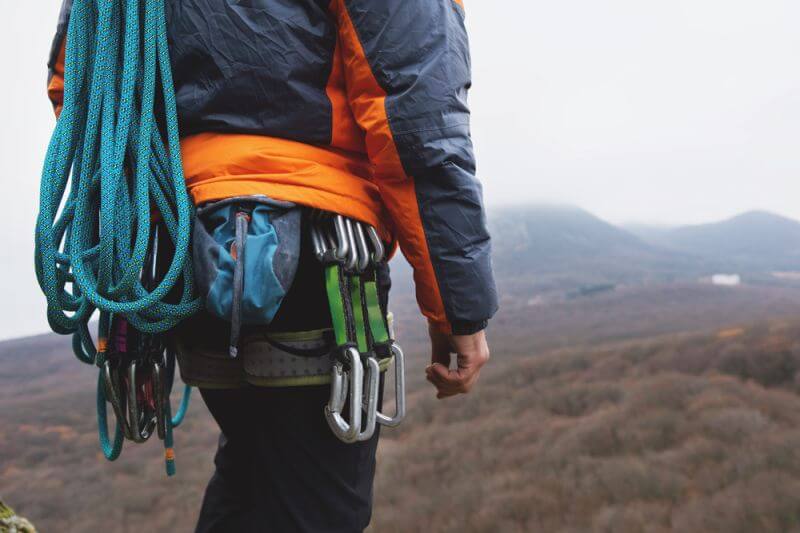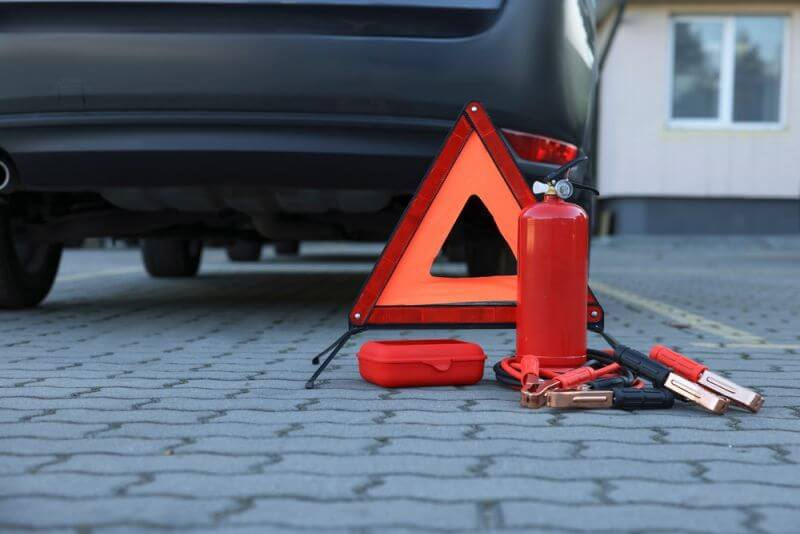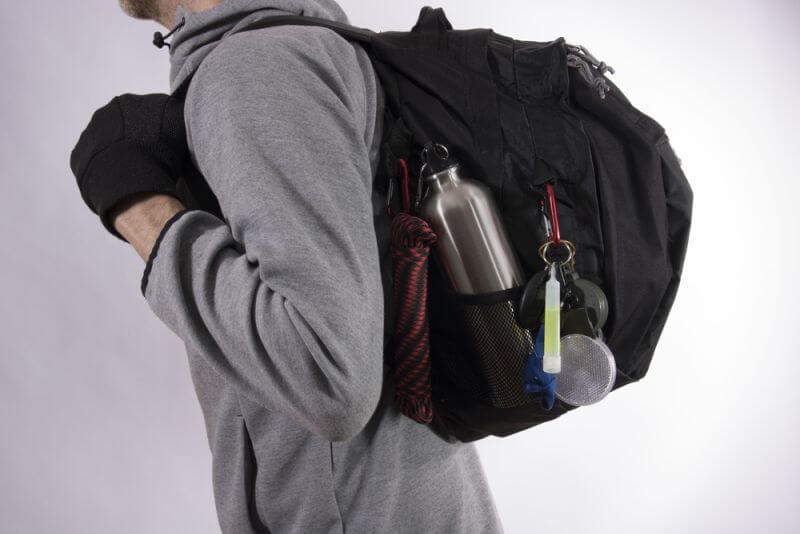Learning to be the best marksman that you are capable of being is going to be a lifelong field of study.
If you can afford it, try to attend at least one premium instruction course a year. Here you will learn what is new or other things that might help you to become a better shooter.
If you cannot go to the new premium courses then go to refresher courses locally. These courses can keep you from falling into bad habits, slowing down, and losing your shooters edge.
Shooting instruction is readily available as are firearms. There is a pretty good selection of instruction from local instructors and from the premium instructional schools or an academy.
Choosing the Right Shooting Class for Yourself
The first thing every shooter must decide is which firearms to learn to shoot and where to get the proper training to shoot and operate these weapons safely. The best advice I can give to new shooters is to start with a basic safety course that covers rifles, handguns, and shotguns. How you plan to shoot these weapons will determine which training options you will need.
{adinserter aliveafteramerika}For some people their firearms main purpose is for self-defense, while others are focused on hunting or competition shooting. Remember to always do your research. This will help you to make educated decisions and communicate well with the instructors.
As you advance from level to level, you might not get the best instructor because of your lack of knowledge on the subject. Therefore, never take for granted that you can simply squeak by during class time and then “make it up during practice”. Remember, you are taking classes to gain new techniques or improve existing ones; not to squeak by or look good enough to pass the class.
6 Tips for Choosing the Right Shooting Instructor
Check the Cost
For many shooters the cost of private instruction is way too expensive for their budget. Know what you can afford to pay and what the average cost is for private instructors in your area is. Usually group lessons are cheaper than individual instruction, but private classes are normally of a higher quality.
Get Referrals
An instructor may have many qualifications, but this does not mean that they can teach. Learn what others have to say about this instructor: are they good, average, or poor?
Does this instructor work well with all students or does he have issues with working with women, children, or individuals that are a little slow at learning the subject material?
Be Sure the Instructor Is Respectful
The instructor should never insult you, talk down to you, or belittle you. Beware if the instructor has an inflated ego. This is not how to teach. A good teacher respects their students. If possible meet with the instructor before the class date to get a sense of them.
Find Out the Instructor’s Background
The instructor should be properly trained. This training can be from many sources like the government, firearms schools, or competitive shooting.
Ask the potential instructor how and where they learned to shoot. A good instructor continues to practice often and continues to update their training regularly.
Most important of all the instructor should have certifications and licenses to prove their ability and knowledge of what they are teaching.
Make Sure Safety Is a Priority
Firearms are dangerous when improperly handled. Any marksmanship class should have safety as a big part of the curriculum and practices. Safety should be stated on the syllabus and the instructor should not make light of firearm safety.
Learn the Focus of the Instructor’s Course
Learn the areas the instructor will focus on. If an instructor emphasizes areas you are weak in, this instructor would be a good choice. If the instructor does not state a specific focus, you may end up only getting a very general approach to shooting.
What Would Be the Requests of a Good Instructor
The following 7 sections deal with what a good instructor requests of his students.
Safety Minded
Students are to be safety minded. Horse play is not to be tolerated or allowed. As a student you do not want to worry about issues like “How safe is the person next to me?”
Having an Open Mind
Have an open mind, think of every class as a clean slate. Push all of your previous training to the side and do the class exactly like the instructor tells you. If you cannot honestly receive instruction with an open mind, staying home would save you money.
Do Your Best
Not all shooters learn at the same speed. When learning new techniques it is normal for your shooting groups to open up when you change the way you shoot.
You will most likely have a short period of feeling awkward about the techniques. Classes are not competitions. Stay with the new techniques for a while before you give up on it because it might just pay off.
Do Not Disrupt the Class
If you think you know more than the instructor be quiet and do not disrupt the class. If you have a valid point to make, wait for a break in the lecture and talk to him/her.
Ask Questions If You Need To
It you have a question ask it. The only bad question is one that was never asked. Do not fear that your question is dumb or may not be fitting for the course. Your problem could possibly be one of simple misunderstanding of the terms or the techniques.
Do Not Tutor Others
Do not tutor other student especially on the firing line. This is the job of the range officers and the instructor.
Know the Difference between Training and Practice
Training and practices are two different things. Training is what you do under the watchful eyes of instructors. Practices is what you do after training to ingrain those skills.
After taking a class you must practice the things you have learned or they will be quickly forgotten and you will lose your edge.
How to Show Up for Class
Show up for class on time and be ready to stay. Besides your standard range gear, take water, bug repellent, sunscreen, and extra weather appropriate clothing. Bring snacks and lunch too. Remember to pack any needed medications in your bag.
What to Do the Night before Class
If you are taking classes locally, there will be fewer temptations to let other things get in the way of your focus on training.
That being said, when you are out of town, it is natural enough to want to party or do some sightseeing. You are better off setting other time aside in your schedule for having fun so that you still get the most out of your classes.
Get plenty of sleep, do not get drunk the night before class, make sure you eat enough supper, and do not eat too many snacks. If you go out and party the night before the class you will be overtired, sluggish, achy, generally unwell, and will not be at your very best.
The Costs for a Good School
For shooters on a tight budget, being able to attend a premium shooting school would most likely blow the weapons and training fund.
For these individuals I would recommend going to local indoor or outdoor shooting ranges that offer basic to advanced certified shooting courses. These courses are much cheaper in the long run and you would not have to travel away from home, which will also save a lot of money.
For those shooters that can afford to go to the premium training schools the two schools listed below would be excellent choices.
Let’s see a couple of schools that might be exactly what you need to improve your shooting skills:
Roger’s Shooting School
Handgun Courses
This school has training in basic handgun and intermediate/advanced for individuals 14 years old and older. These courses cover safety, maintenance, concealed carry, tactics, holster techniques, and shooting skills. Students will shoot over 2500 rounds of ammunition per class.
The classes begin on Sunday night at 7PM with a safety lecture and ends on the following Friday at noon. The handgun course starts at 09:00 and ends at 16:30 daily except for Friday. There are optional shoulder fire weapons courses are taught concurrent with the handgun training.
The cost of each handgun course is $1200 plus ammunition. Lunch and dinner at the lodge is $50. For $125 they provide lodging plus a breakfast for each class day.
Combat Shotguns
(This class may be taken as an optional class with the handgun classes)
The course starts daily at 16:30 and ends at 18:00 daily. Students will encounter multiple, rapidly moving, reactive steel targets with short exposure times.
The drills are designed to force the student to engage targets and reload under stressful and limited time conditions as well as using effective cover while doing so. About 400 rounds of 12gauge birdshot is used to train the students and about 75 rounds of 00 Buck are needed for qualification.
If possible, bring your own 12 gauge pump action shotgun. All shotguns must have a minimum of 5 rounds fully loaded. Low or reduced recoil ammunition is encouraged. Tuition is $200 plus the cost of ammunition.
Urban Carbine
This class starts daily at 16:00 and ends at 18:00. Urban carbine is also offered with the handgun classes. Students will engage multiple moving targets at distances of 7-20 yards which are exposed for about 1 second and must be hit to score. The school supplies the 9mm M-4 carbines equipped with both optical and iron sights.
The cost of the course is $300 plus ammunition. All gear related to the 9mm M-4 rifles will be provided.
Gunsite Shooting Academy
This shooting academy is one of the best in the nation. They teach basic, intermediate, and advanced shooting skills for handguns, shotguns, carbines, and bolt action rifles. The instructors are military, law enforcement trained or both; and are also at the top of their chosen fields of marksmanship training.
The cost of all Gunsite courses is for the training and does not include room and board, transportation to and from Gunsite, ammunition, or other necessary items for the courses.
Pistol Training
250 Pistol Course
The 250 course includes 5 solid days of range work, lectures, and intensive indoor, outdoor, and low light live fire simulators. To be skillful with arms is a highly perishable skill and continuation of training is a must.
Class Details:
- Duration- 5 days
- Prerequisite- none
- Cost-$1595.00
- Ammunition- 1000 rounds of training ammo and 50 rounds of frangible ammo for simulators.
Class Requirements:
- Heavy duty pistol with good sights, a decent trigger in either 9MM .40, or 45ACP.
- Heavy duty belt and holster.
- Magazine carriers for 6 single magazines or for 3 double stack magazines.
- A light on the pistol or a flashlight with a pressure switch.
- Eye Protection- Clear or dark glasses.
- Ear protection- muffs or plugs
- Sunscreen and insect repellent
- Extra clothing-seasonal clothing, hat with a brim, jacket, long pants, long sleeve shirt, and rain gear.
350 Intermediate Pistol Course
This course has a short review of the 250 course and then proceeds to the more advanced fighting skills. You will learn to be faster and much more accurate on the target. The student will be shooting on the move and at moving targets. You will be introduced to Force on Force training.
Class details:
- Duration- 5 days
- Prerequisite- 250 Defensive Pistol
- Cost- $1795.00
- Ammunition- 1000 rounds ball ammunition and 200 rounds frangible ammunition
General Requirements – The same as the 250 Pistol Course.
499 Advanced Pistol Course
In this class the shooters are already very good pistol operators. At this advanced skill level even minute improvements in your technique will lead to major increase sin you outcome.
You will learn how to clear malfunctions under high stress conditions, increase your speed, and accuracy. In this course you will have considerably more live fire simulations, low light work, and much more emphasis on Force on Force.
Class details:
- Duration-5 days
- Prerequisite- 350 Pistol Course or Expert rating in the 250 Course within the previous year.
- Cost- $1995.00
- Ammunition- 1100 rounds of ball ammunition and 250 rounds of frangible ammunition for simulators.
General Requirements- The same as the 250 and the 350 Pistol Courses.
Defensive 3 Gun Course
This course covers 2 days of handgun, 2 days of carbine, and 1 full day of shotgun training. The students will cover training in marksmanship, malfunctions, carry methods, safety, care and maintenance, and the combat mindset.
Class details:
- Duration- 5 days
- Prerequisite- none
- Cost- $1630.00
- Ammunition- 600 rounds handgun, 600 rounds carbine, 100 rounds 00 Buck, and 50 slugs.
General Requirements for Pistol, Shotgun, and Carbines
Pistols
- The same requirements as the 250, 350, and the 499 courses.
Shotguns
- Pump or semi-auto 12 gauge or 20 gauge shotguns.
- Ammunition management belt carrier.
- Weapon mounted light for night shooting.
- Heavy duty handgun 9MM, 40, or 45ACP.
- 3 pistol magazines with holders.
- Ear and eye protection that is shotgun compatible.
Carbine
- Serviceable carbine in .223, 30 cal., 7.62×39, or 5.45×39.
- Heavy duty handgun in 9MM, .40, or 45ACP.
- Heavy belt, holsters, magazine carriers, and 3 pistol magazines.
- A minimum of 6 magazines for the carbine with a minimum of 2 magazine pouches or a dump pouch.
- Knee and elbow pads
- Ear and eye protection that is carbine compatible.
That’s it. Choose is wise, and enjoy your training!
This article has been written by Fred Tyrell for Survivopedia.









Lyman holler | June 12, 2015
|
Does anyone know of a school that accepts handicapped students?
Jdub | June 12, 2015
|
I know of two great trainers in the art of firearms training.
http://www.maxvelocitytactical.com/
And,
http://www.tacticalresponse.com/
These are the very best in the country. My first pick would be Max Velocity.
Pingback:The DOs And DON’Ts Of Gun Cleaning - Survival By Preparedness | October 9, 2015
|
Pingback:Paris – Ground Zero For The European Jihad | Prepper's Survival Homestead | November 18, 2015
|
Pingback:A Quick Guide To Shooting Fundamentals | Survivopedia | January 24, 2016
|
Pingback:A Quick Guide To Shooting Fundamentals | Prepper's Survival Homestead | January 24, 2016
|
Pingback:A Quick Guide To Shooting Fundamentals | NewZSentinel | January 24, 2016
|
Pingback:A Quick Guide To Shooting Fundamentals | | disasterdefense.us | January 24, 2016
|
Pingback:Self-Defense For Weak And Small | Survivopedia | January 27, 2017
|
John Mahoney | January 30, 2017
|
I agree that when it comes to taking shooting or conceal carry classes you need to make sure the school focuses on safety. It makes sense that doing this would not only educate you on how to use weapons but also how to safely store them and any risks they may present. I would want to make sure I choose a place where I can feel safe while learning what I want to learn.
Pingback:What You Need To Know About Getting A Concealed Carry Permit | Survivopedia | November 10, 2017
|
Persephone de Vito | December 10, 2017
|
It was nice how you said that an instructor might have the qualifications but that does not mean that they can teach. I liked how you suggested asking for referrals to know which instructors have no problem dealing with women, children, and slow learners. That’s a good suggestion, especially since I plan on learning how to use a gun. It’s a means of self-defense because anything can happen nowadays. This article inspired me to look for a good class and instructor. Thanks!
Pingback:Paris - Ground Zero For The European Jihad | Survivopedia | February 22, 2018
|
Pingback:Winter Projects For A Man's Hands | Survivopedia | October 12, 2018
|